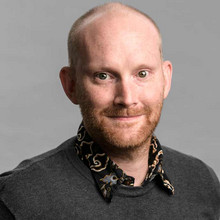Prof. Dr. David Abson

Vita
I am a problem centred interdisciplinary scientist working within the field of sustainability economics and sustainability science, with a particular emphasis on food system research. My primary research interests revolve around three broad interdisciplinary research areas:
1) The integration of economic, social and natural science perspectives on sustainability issues within the context of multifunctional agro-ecosystems (e.g. Abson et al. 2013; Abson et al. 2014a; Fischer et al. 2014, Loos et al 2014; von Wehrden et al. 2014). Here I seek to understand the ways in which different domains of knowledge conceptualise and operationalize sustainable agriculture and what tools, theories and approaches can act as effective interfaces for interdisciplinary research that acknowledges the tied socio-ecological nature of agro-ecosystems.
2) The theory and operationalization of the concept of “ecosystems services”, with a particular focus on ecosystem service perception, valuation and the normative foundations of the concept (e.g. Abson and Termansen 2011; Abson and Hanspach 2013; Abson et al. 2014b; Brant et al. 2013; Gralla et al. 2014a; Milcu et al. 2013; Milcu et al. 2014). Here I seek to apply systemic approaches to conceptualizing and critiquing the ecosystem services framework as a means of understanding and managing the interdependencies between societies and their environments.
3) Systemic understanding and modelling of complex systems (e.g. Abson et al. 2013b; Mikulcak et al. 2015), including an interest in resilience thinking (e.g. Abson et al. 2012; Abson et al. 2013; Abson et al. 2017), transdisciplinary (e.g. Brant et al. 2014, Gralla et al. 2014b) and scenario modelling (e.g. Bateman et al. 2014a; Hanspach et al. 2016).
My research employs interdisciplinary research frameworks and methods ranging from biophysical (e.g. Bateman et al 2014b; O’Neill and Abson, 2009), economic (Abson et al. 2013; Abson et al 2014) and statistical (Abson et al. 2014a) modelling, landscape ecology (Hartel et al, 2014) and systems thinking. Spanning the broad research interests outlined above is a keen interest in the operationalization of complex (often heuristic) models into novel, nuanced real world sustainability problems and the challenge of considering spatial and temporal scale in empirical research.
Academic Career
- Since 2017: Professor of Sustainability Economics and Assessment
- 2012-2017: PostDoc Position, Leuphana University Lüneburg, Faculity of Sustainability, Germany
- 2007-2011: PhD student and post doctoral researcher, University of Leeds, School of Earth and Environment, United Kingdom
Awards
- 2023: ERC Consolidator Grant ("Mainstreaming Social-Ecological Sufficiency: Closing the sustainable consumption gap between societal demand and ecological limits”)
